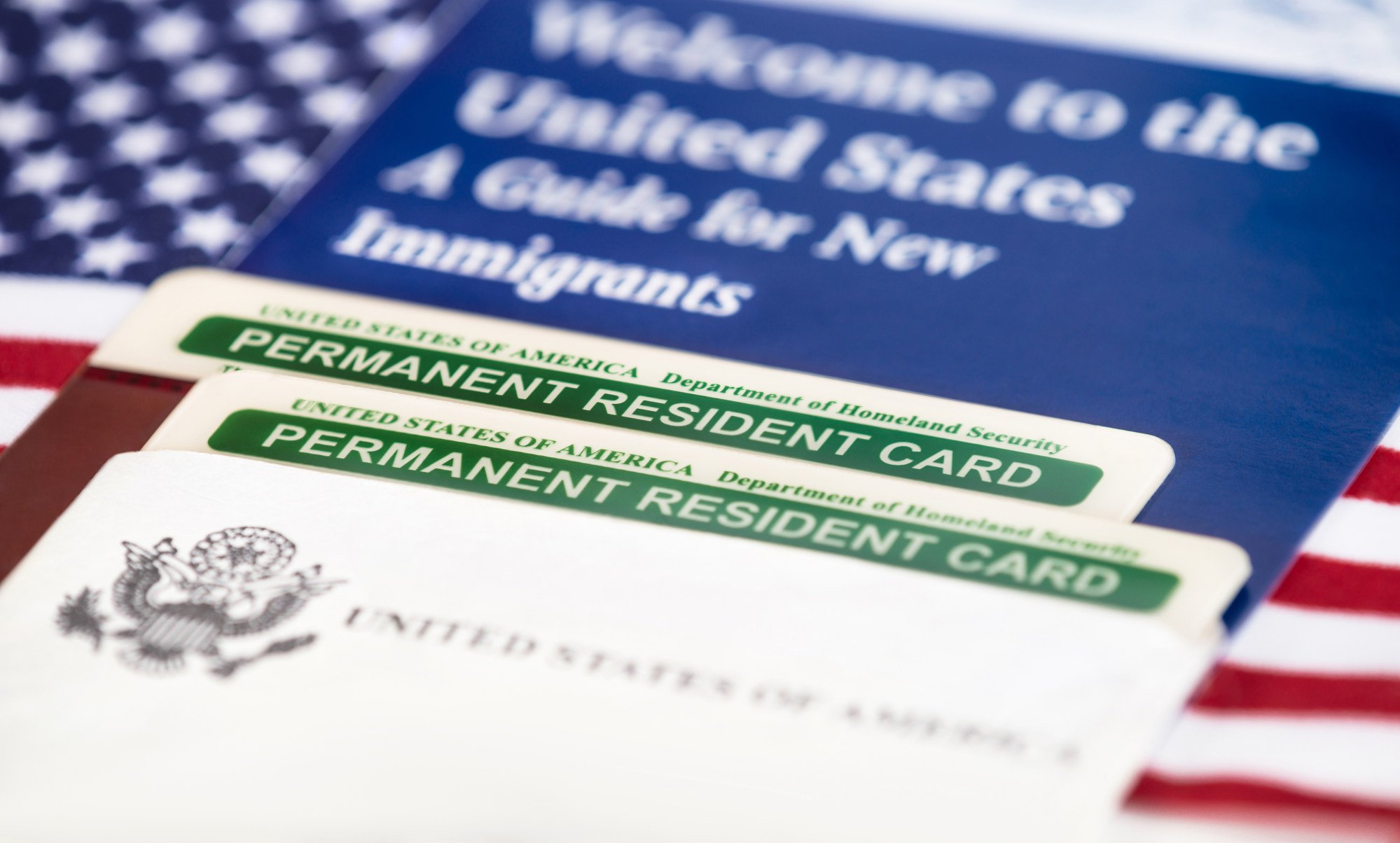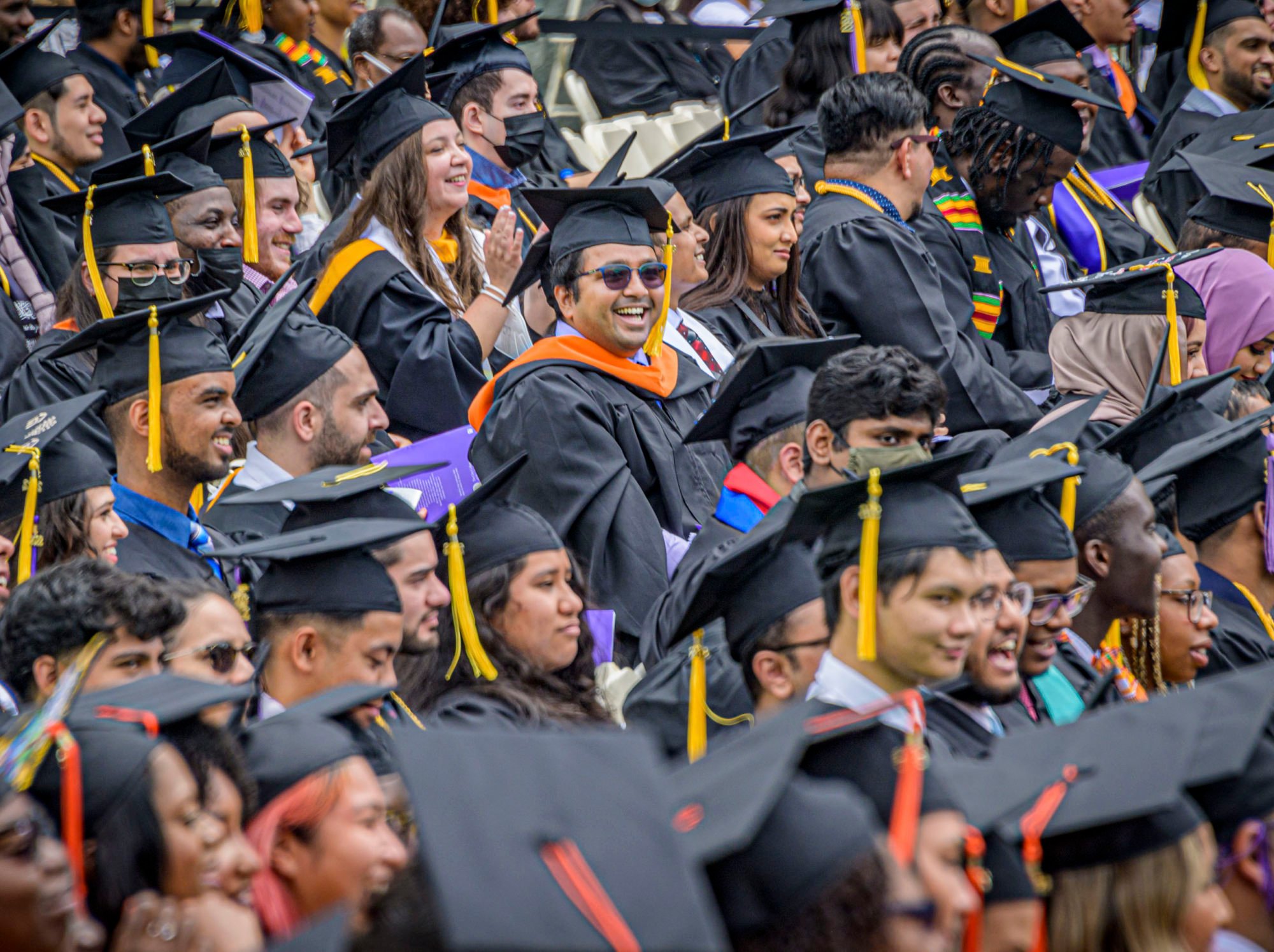Former US president Donald Trump said in an interview he wants to give automatic green cards to foreign students who graduate from US colleges, a sharp departure from the anti-immigrant rhetoric he typically uses on the campaign trail.
Trump was asked about plans for companies to be able to import the “best and brightest” in a podcast taped Wednesday with venture capitalists and tech investors called the “All-In”.
“What I want to do and what I will do is you graduate from a college, I think you should get automatically as part of your diploma a green card to be able to stay in this country. And that includes junior colleges too, anybody graduates from a college. You go there for two years or four years,” he said, vowing to address this concern on day one.
Immigration has been Trump’s signature issue during his 2024 bid to return to the White House.

His suggestion that he would offer green cards – documents that confer a pathway to US citizenship – to potentially hundreds of thousands of foreign graduates would represent a sweeping expansion of America’s immigration system that sharply diverges from his most common messages on foreigners.
Trump often says during his rallies that immigrants who are in the country illegally endanger public safety, and steal jobs and government resources, and once suggested that they are “poisoning the blood of our country”.
He has promised to carry out the largest deportation operation in US history if elected.
Trump and his allies often say they distinguish between people entering illegally versus legally. But during his administration, Trump also proposed curbs on legal immigration such as family-based visas and the visa lottery programme.
One immigration advocate was not convinced by Trump’s proposal.
“I almost have to laugh because his administration adopted multiple policies aiming to restrict student visas and make it harder for people to stay in the country after graduating,” said Aaron Reichlin-Melnick, policy director at the American Immigration Council.
Right after taking office in 2017, he issued his “Buy American and Hire American” executive order, directing Cabinet members to suggest reforms to ensure that business visas were only awarded to the highest-paid or most-skilled applicants to protect American workers.
He has previously said the H1-B programme commonly used by companies to hire foreign workers temporarily – a programme he has used in the past — was “very bad” and used by tech companies to get foreign workers for lower pay.

During the conversation with “All-In”, Trump blamed the coronavirus pandemic for being unable to implement these measures while he was president.
He said he knows of stories of people who graduate from top colleges and want to stay in the US but can’t secure visas to do so, forcing them to return to their native countries, specifically naming India and China.
He said they go on and become multibillionaires, employing thousands of workers.
“You need a pool of people to work for your company,” Trump said. “And they have to be smart people. Not everybody can be less than smart. You need brilliant people.”
In a statement released hours after the podcast was posted, campaign press secretary Karoline Leavitt said: “President Trump has outlined the most aggressive vetting process in US history, to exclude all communists, radical Islamists, Hamas supporters, America haters and public charges.
“He believes, only after such vetting has taken place, we ought to keep the most skilled graduates who can make significant contributions to America. This would only apply to the most thoroughly vetted college graduates who would never undercut American wages or workers.”
The US president also simplified the process for migrants who came to the United States illegally as children – known as “Dreamers” – to get work visas if they’ve graduated college and have a “high-skilled job offer”.
Biden – often accused of being soft on immigration by Republicans – earlier in June signed an executive order barring migrants who enter the United States illegally from claiming asylum when numbers surge past 2,500 in a day.
Additional reporting by Reuters and Agence France-Presse

